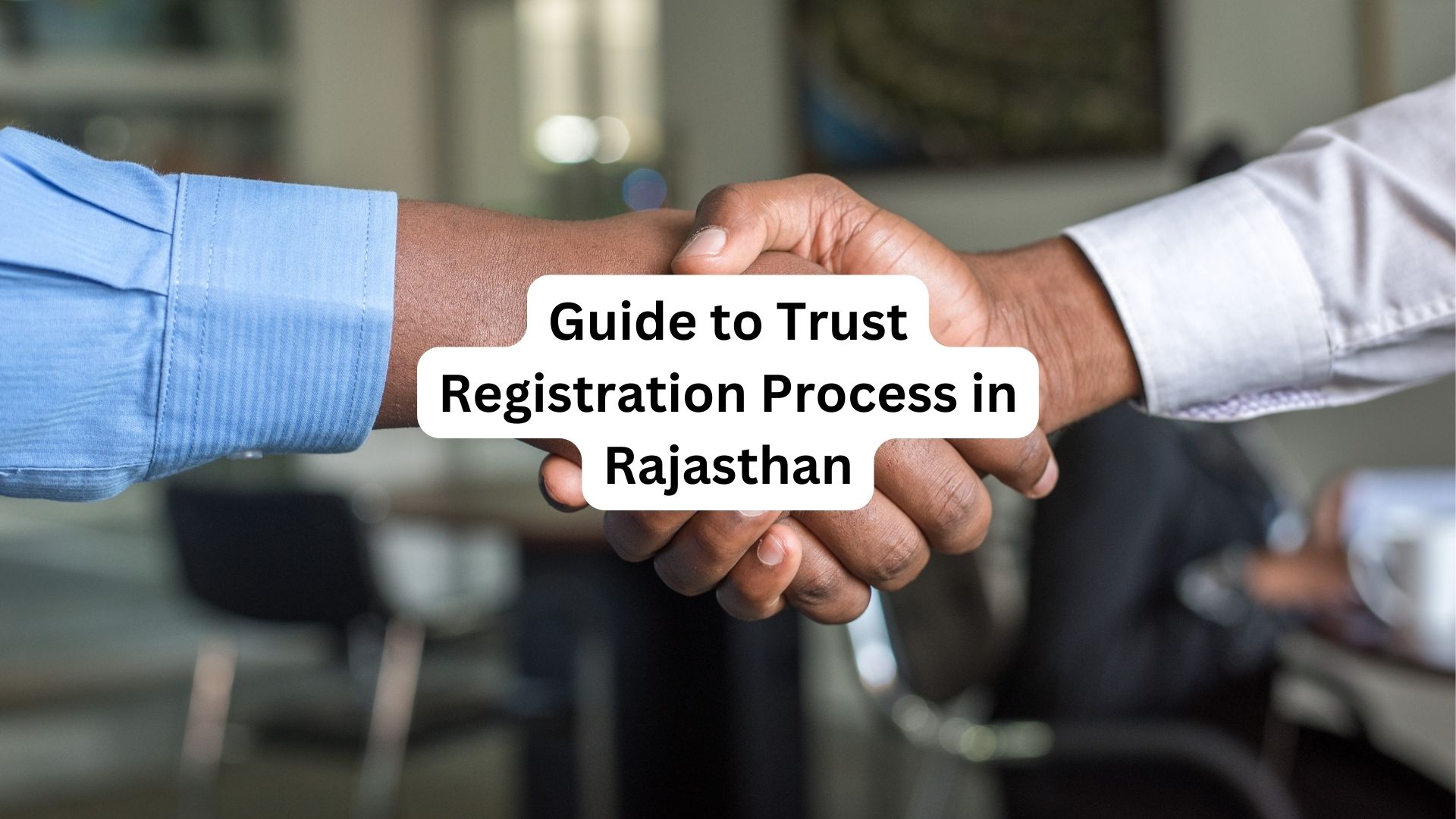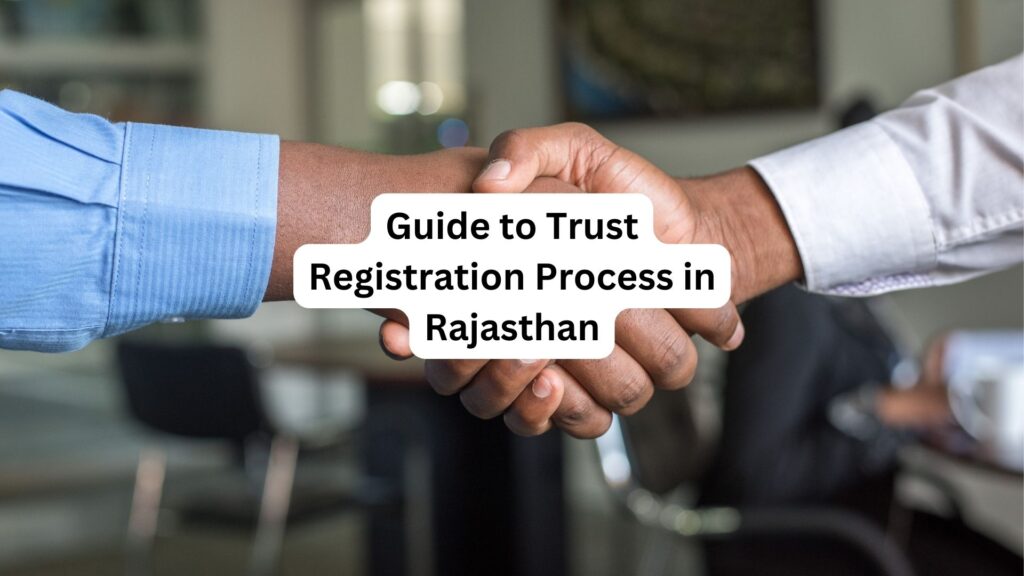
19 Feb Guide to Trust Registration Process in Rajasthan

Discovering the appropriate pathway for structured assistance leads to the realm of trust registration. In the culturally rich land of Rajasthan, the registration of trusts under the Indian Trust Act, 1882, offers a route to materialize legal norms. This guide aims to provide comprehensive assistance on the process of trust registration in Rajasthan, including eligibility criteria, required documentation, and key features.
Understanding Trust Registration:
Trust registration entails the formal establishment of a trust entity by registering it with relevant governmental bodies. A trust involves the transfer of assets from a settlor to a trustee for the benefit of beneficiaries, governed by a trust deed. The registration process grants legal recognition to the trust, ensuring transparency, accountability, and compliance with laws and regulations. Moreover, it provides tax benefits and legal protections.
Key Features of Trust Registration:
Trust registration embodies essential features defining the legal entity and its operations:
- Legal Entity: A registered trust becomes a distinct legal entity, capable of owning property and entering contracts.
- Trust Deed: This document outlines the trust's objectives, rules, and responsibilities of trustees and beneficiaries.
- Settlor: The individual establishing the trust by transferring assets.
- Trustees: Responsible for managing trust assets in the beneficiaries' interest.
- Beneficiaries: Individuals or groups benefiting from the trust as per the trust deed.
- Clear Objectives: Trust objectives must be defined lawfully.
- Property Transfer: Involves transferring assets from settlor to trustees.
- Beneficiary Rights: Entitlements including benefits, information, and legal recourse.
- Perpetual Existence: Trusts can endure beyond founders' lifetimes.
- Accountability and Reporting: Trustees manage assets transparently, often reporting to beneficiaries and authorities.
- Tax Benefits: Registered trusts may enjoy tax benefits.
- Registration: Submission of trust deed and documents to gain legal recognition.
Necessary Criteria for Trust Registration in Rajasthan:
Eligibility criteria for trust registration in Rajasthan include:
- Intention to Create a Trust: Trust objectives must be lawful.
- Trustees: Minimum of two individuals willing to act as trustees.
- Beneficiaries: Clearly identifiable beneficiaries or beneficiary classes.
- Trust Deed: Properly drafted and signed document outlining trust details.
- Property: Involves transfer of property to trustees for beneficiary benefit.
- Compliance with Laws: Adherence to stamp duty and registration laws.
- No Religious or Charitable Disabilities: Compliance with relevant laws.
How to Obtain Trust Registration in Rajasthan under the Indian Trust Act, 1882:
To register a trust in Rajasthan:
- Prepare the Trust Deed: Draft a detailed trust deed.
- Choose Trustees: Select trustworthy individuals as trustees.
- Visit Sub-Registrar’s Office: Submit application and required documents, pay fees, and undergo verification.
- Registration of Trust: Once requirements are met, trust deed will be registered.
- Stamp Duty: Ensure proper stamping of the trust deed.
- Obtain Registered Trust Deed: Receive a copy of the registered trust deed.
- Apply for PAN and Bank Account: Obtain PAN and open a bank account for the trust.
Conclusion:
In conclusion, trust registration in Rajasthan bridges purpose and legality, facilitating transformative actions. It aligns with the cultural heritage and philanthropic spirit of Rajasthan, providing a platform for meaningful change within communities and lives.


No Comments